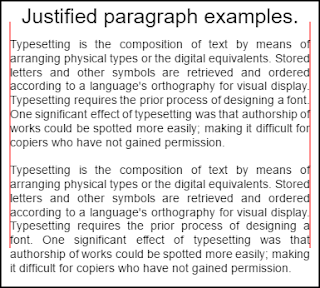I remember a morning when I was five years old. My mom wanted me to wear a dress to kindergarten. But I didn’t want to. So, there arose a conflict between us. I was vehemently screaming, “I don’t want to wear a dress!” when I saw my stepdad coming up the basement stairs. I thought he had gone to work already. He usually wasn’t there at this time of the morning. But there he was, an angry look on his face that I recognized all too well. I stopped screaming immediately and I turned around and ran back up the stairs. He came after me…
This is part 5 of "I Have a Tale to Tell"
What followed was extreme NW parenting. I won’t describe the details. They don’t matter now. What matters is what I learned AND did not learn from this and many subsequent interactions with him between the ages of 4 and 10.
In evaluating this story and my stepdad, I want to address the semantic concept of Evaluation, which is on the Southern side of the Compass. It has been important for me to know and be careful about the way I evaluate relationships, people, events, feelings, and results. This is because the way I evaluate others is the way I evaluate myself.
"With what judgement ye judge, ye shall be judged." -Matthew 7:1-5
The Southern Balance
The South is the ideal way of evaluating the past and present things that happen. We divide these results into two categories: successes and failures. Of course, on the Compass, there are degrees between total success and total failures. In semantics, every concept has incremental degrees between the two extreme points like the degrees between light and darkness that make up the Zone.
So, the South represents the ideal way to evaluate success. Ideally, when we achieve success, we acknowledge that we have been a contributor. Our choices, our actions, our words, our thoughts, our sacrifices. We also acknowledge that there were others who played a significant role in achieving it. Others include God, our parents, teachers, friends, children, extended family, spouses, or other community members.
We need to remember that there are so many people who have come before us and who have contributed to our present privileges and resources. Thomas Edison, Benjamin Franklin, the Founding Fathers, whoever invented plumping, automobiles, and computers. There are so many more. Seriously, we cannot forget that we stand on their shoulders. It is important to acknowledge that it is always a team effort to accomplish our goals.
It is also important to evaluate accurately because when we go into the next goal achievement process, we won’t try to do it in an extreme NW/NE way, in which we think that some things ride on our effort and sacrifice alone (when they don't) AND at the same time leave other more crucial things undone. When we evaluate in Extreme Imbalance and the going gets tough or when the going gets super boring, we are likely to abuse and neglect ourselves and others. It is not a sustainable evaluation process.
If we evaluate in the South, we are very aware that in our next goal achievement process, we need to find the balance in the team effort. When we engage in this type of process, we will achieve a greater degree of success together.
Evaluating Failure through the Southern Balance
The South also represents the ideal way to evaluate failure. We acknowledge that we have contributed to the problem. Our choices, actions, words, thoughts, and NW/NE ways of doing things were most likely partly responsible for a failed outcome. We also acknowledge that there were others who played a significant role in causing the problem. Others include God, our parents, teachers, friends, family, spouses, and other community members.
We all are falling together because of this bumper-car-state we are in. And we need to experience this Fallen state in order to develop REAL sustainable compatible relationships. The bottom line is that sacrificing for each other enables us to develop bonds of love that cannot be developed in any other way. If there were not REAL opportunities to sacrifice, these bonds could not form.
Southeast Evaluation - Pride & Shame
The Southeast (SE) way of evaluating is when we take too much credit for successes or too much responsibility for failures.
Taking too much credit is pride. It is thinking that we have obtained our privileges and resources by the strength of our own arm without any help from anyone else. We think we deserve all the credit. That’s the extreme. But it is still an incompatible way of evaluating when we don’t attribute enough of the credit to others.
Taking too much of the responsibility for a failure is Toxic Shame. Shame and guilt are within the Zone between the South and extreme SE. Sometimes that kind of evaluation is helpful and contributes to our motivation to change. Changing is about developing better relationship skills that bring us Sustainable Joy. But Toxic Shame will result in the opposite. It will lock a person up and ruin people and relationships.
Southwest Evaluation - Inhibition & Blame
The Southwest (SW) way of evaluating is when we take too little credit for successes or too little responsibility for failures.
The semantics behind taking too little credit for successes is somewhat hidden in our society. It is vague and squashed out because so many of us are attempting to avoid the extreme imbalanced evaluation of pride. But when we take too little credit for the actual contributions we have made to a success we end up with low self-esteem or low confidence. We are inhibited, hesitant, doubtful, nervous, insecure, unsure, and wavering. We might think it is the saintly thing to do to attribute the success completely to God or to others. But where does that end us up when we go into the next goal achievement process? In the NE. In a NE goal achievement process, we think God or others will do everything for us to accomplish the goal. And if it doesn’t happen, then what? Should we blame them for the failure?
Toxic Blame is the other side of the SW coin. The Lord has trained me to think of this constructively. If we blame too much of a failure on someone else, we miss opportunities to turn failures into successes. We get so hung up on something that has happened to us and we think the solution is to talk about what others have done to us over and over again. There is a time and space to talk about it. And we need to do that. But when that is our eternal resolution process, we are not understanding the power that the Atonement of Jesus Christ gives us to make lemonade out of lemons!
The opportunity to change things is made possible by his Atonement. He comes in as an opposing power to the Fall. The Fall causes the bumper-car experience. When something bad is done to us, we inadvertently are forced to do something bad to someone else. Bumper cars. Or you could think of it like dominoes. When one falls, it hits the next one in line, and before you know it, everyone is down.
The Atonement of Jesus Christ is the Space between Stimulus and Response
Jesus Christ creates that space between the bumper cars or between the dominoes. He can help us create that space in ourselves. Even though something bad has been done to us, we can be trained to use our choice, our will, our strength to refrain from passing it along. Instead, we turn to Christ with the pain and sorrow. We turn to him to receive his comfort, peace, and strength. And we turn to him for retraining. I have found that process completely healing and satisfying. More on that later.
But let’s get back to evaluating my stepdad. The Lord has taught me how to evaluate in the Southern Zone. He has given me time to talk about what was done to me and what it subsequently caused me to do. There were many times that I needed to vent. He was there to allow me to do that. I needed that space and time. To force me or guilt me into forgiving others before I was actually ready to do it from my heart is not a sustainable process. To objectively evaluate the pain and sorrow that I experienced throughout my childhood and into adulthood because of the way I was raised has also been important. I used to perpetually evaluate my past from both the SE and SW extremes. Learning how to evaluate in the South has freed me from many of the chains of bondage that have kept me down for so many years.
My stepdad parented me from the extreme NW/NE. Too much discipline, too soon, and not enough patient training. But he did this because his parents disciplined him in the same way. Before he married my mom, he turned to the Lord to change some of the dysfunctional behaviors he had learned from his upbringing. For example, he didn’t pass on alcoholism to me or my siblings. I am thankful to him for that.
But it is difficult to absorb the full force of the impact from previous generations and completely stop it from passing on to the next. Some of it usually squeezes through. I know this because I experienced it myself.
When I became a parent, I had no idea there were dormant dominos inside of me. I mean, I knew what had happened growing up, but I thought that just knowing that it was not a good way to parent was enough. It wasn’t enough. The dormant dominos woke up when I was faced with the challenges of parenthood. I also parented in the extreme NW/NE at times. In one of my previous posts on Paradoxical Parenting, I referred to this as Survival Parenting.
Read more details about my parenting experiences in these posts:
Children Need to be Disciplined
The fact is that children need to be disciplined. They don’t have compatible relationship skills yet. They are focused on getting their own needs met. They scream and yell. They throw tantrums. They kick, hit, punch, push, and bite in their attempts to resolve conflict and obtain their desires. They aren’t always the little angels that many people like to portray them as. But they do have that angel side. They are a dichotomy of angel and devil (think Jack Jack). And parents have to figure out how to deal with them.
The Lord showed me that the key to remember is that we all have desires and conflicts. It is not wrong to desire something. It was not wrong that my stepdad wanted me to learn how to resolve my conflicts in a more reasonable way than screaming. We all would prefer that our children did not scream their heads off when things didn’t go their way. But I did not learn a more functional way of resolving my conflicts when my stepdad responded to me with extreme NW/NE discipline.
I didn’t learn the following principles from these interactions:
- When things don’t go your way, stay calm and try to patiently discuss the pros and cons of each viewpoint.
- Use gentleness and intelligent conversations to persuade other people if you seriously believe (or know) that your viewpoint is the better choice.
- Evaluate who has the final say on what should be done. Children have the right to choose many things, and it is good to give them as many chances to choose for themselves within the NW/NE boundaries as you can.
- Parents should let children experience consequences instead of resorting to Extreme NW/NE parenting to prevent them from happening.
- Parents should give children appropriate consequences within the Northern Zone to train children before they go out into the world and suffer harsher consequences because they didn't know better.
- Developing compatible relationships between parent and child and obtaining these Balanced Northern Relationship Skills are more valuable results than getting your way using brute force in the moment.
The Secrets I Have Learned
I have spent years being ashamed of disciplining in extreme NW/NE during my early parenting years. Even though I too absorbed much of the force of the impact and did not pass along much of what I experienced to my children, there was still some that squeezed out of me during the toughest moments. I have cried many tears of regret and shame. I knew better but I did not know HOW to discipline in the Northern Zone until the Lord came for me and rescued me. Literally rescued me. He gave me the power to absorb much more than I was able to do alone.
What helps me to evaluate my past-self appropriately is the following variables:
- I was consistently praying for help throughout those years
- When he came for me (or I finally had enough, and came to him with a heart sufficiently broken) and showed me the HOW, I changed
I Have a Tale to Tell
The tale I have been trying to tell is not about the Imbalanced things that have been done to me. Yet they do play a part in the story. How could I possibly value the freedom and the Sustainable Joy I experience now if I had never experienced the sorrow?
My focus and my complete joy is the tale of the Atonement of Jesus Christ. I'm telling the story of how he came for me and in doing so I hope to propagate the news that he has the power to come for everyone. This is the secret: If you have sorrow, thank your lucky stars! You now have the capacity to experience joy to that same level of intensity that you have experienced sorrow. But you need to ask and choose to listen and commit.
If you have a tale to tell like mine - of how He has already come for you, I encourage you to share it to strengthen others' faith in Christ.
If you're still in the middle of your story and are experiencing extreme pain and sorrow, I hope this story I am sharing will strengthen your faith in Christ and give you hope!
Listen: Live to Tell by Madonna (clean)












